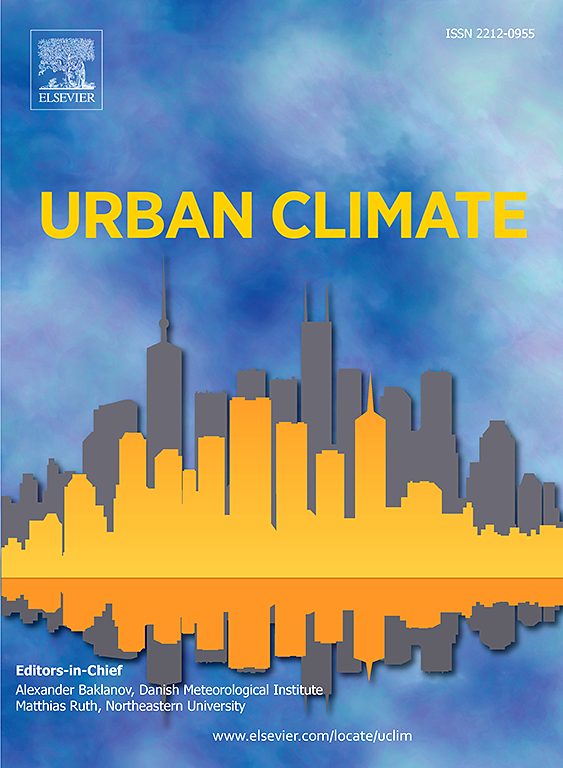The social, technological, economic, and political roles of information and communication technologies in extreme heat adaptation in urban Southeast Asia
IF 6.9
2区 工程技术
Q1 ENVIRONMENTAL SCIENCES
引用次数: 0
Abstract
Enhancing adaptation measures for extreme heat, especially in developing regions and tropical climates, is essential as climate change accelerates. In this context, information and communication technologies (ICTs) play key roles in these adaptation strategies. This paper presents a qualitative analysis of ICTs' role in facilitating extreme heat adaptation specifically in urban Southeast Asia. The analysis is based on 25 semi-structured expert interviews and utilises the social, technological, economic, and political (STEP) framework. Our analysis identifies several factors that drive the deployment of ICTs for adaptation, and it illustrates the ways in which ICTs integrate extreme heat adaptation with risk management initiatives. These initiatives include heat warning dissemination, raising awareness, and optimising energy consumption. Furthermore, we examine the external STEP factors that either facilitate or hinder these processes. In addition, we discuss strategies for leveraging ICTs to enhance responses to extreme heat adaptation effectively.
信息和通信技术在东南亚城市极端高温适应中的社会、技术、经济和政治作用
随着气候变化的加速,加强对极端高温的适应措施,特别是在发展中地区和热带气候地区,至关重要。在这种背景下,信息通信技术(ict)在这些适应战略中发挥着关键作用。本文对信息通信技术在促进极端高温适应方面的作用进行了定性分析,特别是在东南亚城市。该分析基于25个半结构化的专家访谈,并利用了社会、技术、经济和政治(STEP)框架。我们的分析确定了推动信息通信技术用于适应的几个因素,并说明了信息通信技术将极端高温适应与风险管理举措相结合的方式。这些举措包括热警报传播、提高认识和优化能源消耗。此外,我们研究了促进或阻碍这些过程的外部STEP因素。此外,我们还讨论了利用信息通信技术有效增强对极端热适应的响应的策略。
本文章由计算机程序翻译,如有差异,请以英文原文为准。
求助全文
约1分钟内获得全文
求助全文
来源期刊

Urban Climate
Social Sciences-Urban Studies
CiteScore
9.70
自引率
9.40%
发文量
286
期刊介绍:
Urban Climate serves the scientific and decision making communities with the publication of research on theory, science and applications relevant to understanding urban climatic conditions and change in relation to their geography and to demographic, socioeconomic, institutional, technological and environmental dynamics and global change. Targeted towards both disciplinary and interdisciplinary audiences, this journal publishes original research papers, comprehensive review articles, book reviews, and short communications on topics including, but not limited to, the following:
Urban meteorology and climate[...]
Urban environmental pollution[...]
Adaptation to global change[...]
Urban economic and social issues[...]
Research Approaches[...]
 求助内容:
求助内容: 应助结果提醒方式:
应助结果提醒方式:


